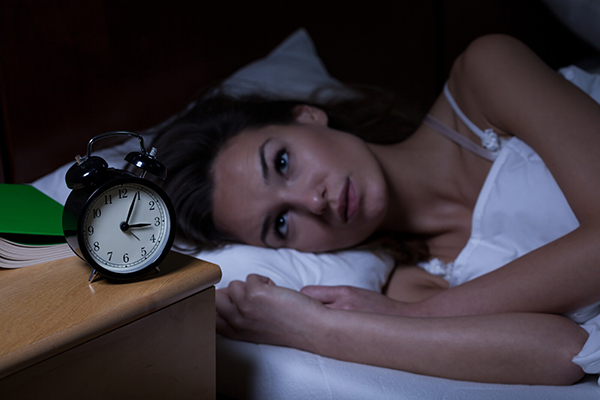It is estimated that one-third of Americans are sleeping worse than they did before the pandemic.
Author: Sherry Farney
 According to a new survey from the American Academy of Sleep Medicine, one-third of Americans are sleeping worse than they did before the pandemic. About 30 percent say they have difficulty falling asleep or staying asleep, while 19 percent of respondents say they get less nightly sleep than before the pandemic. This so-called “COVID-somnia” can be brought on by fears about the coronavirus, concern for our loved ones, economic worries, and limited social contact.
According to a new survey from the American Academy of Sleep Medicine, one-third of Americans are sleeping worse than they did before the pandemic. About 30 percent say they have difficulty falling asleep or staying asleep, while 19 percent of respondents say they get less nightly sleep than before the pandemic. This so-called “COVID-somnia” can be brought on by fears about the coronavirus, concern for our loved ones, economic worries, and limited social contact.
The main causes of insomnia are acute emotional stressors and mental conditions such as depression and anxiety. Also, specific health conditions such as restless leg syndrome, sleep apnea, chronic pain, menopause, pregnancy, the adoption of poor sleep hygiene, and negative thoughts about sleep can cause insomnia.
“The diagnosis of insomnia is made when a patient expresses concerns regarding difficulty falling asleep, staying asleep, or poor quality sleep,” said Melissa Littell, a physician assistant at McLaren Flint-Fenton Family Medicine. “It can be acute, lasting days or weeks, or chronic, lasting three or more days per week for at least three months. Patients also express concerns about the ways this affects their vocational, educational, and social function and it is often extremely distressing to them. They will commonly complain of increased daytime sleepiness, brain fog, inability to concentrate, headaches, irritability, and impaired work or school performance as a result of their sleep disturbance.”
There is no one size fits all solution to treating patients with insomnia. Medication options are available, as are complete holistic approaches. Usually, it’s often both.
“I like to start with questions that help me identify specific treatable causes, address dysfunctional thoughts and feelings about sleep, and then educate on sleep hygiene,” said Melissa. “I always educate on the pearls of good sleep hygiene, review current medications that could be adversely affecting sleep or potentially interact with sleep medication if prescribed. We also discuss over the counter options like Melatonin, Doxylamine, or Diphenhydramine. Herbal supplements like Valerian root or Ashwagadha can also often be safe non-habit-forming options for some patients.”
For more acute and temporary stressors, sometimes nonbenzodiazepines can be used temporarily, but are best when avoided for prolonged periods as they can cause dependency if continued for too long. They can also be unsafe if combined with other sedating substances or medications.
When there is depression or anxiety is involved, counseling services and antidepressants can be used in combination to treat insomnia. If there are concerns about restless leg syndrome, sleep apnea, or other rapid eye movement behavioral disorders, patients are typically referred for sleep study to make a more formal diagnosis and treat them safely with a more targeted approach.
“Good sleep hygiene includes specific habits that promote good quality sleep and when not addressed can be a huge roadblock to sleep restoration,” said Melissa. “These habits include being consistent with bedtime and rise time, avoiding daytime napping for longer than an hour, avoiding caffeine after noon, avoiding alcohol and nicotine near bedtime, regular exercise, and settling down and relaxing two hours prior to bedtime; avoiding watching the clock during the night by getting rid of the bedside clock and your phone, avoiding large meals just before bed, but not going to bed hungry, and creating a quiet, peaceful, dark sleeping environment by avoiding exposure to light emitting screens such as televisions, phones, and iPads two hours before bed.”
If you are looking for a primary care physician, visit mclaren.org/flintappointments.